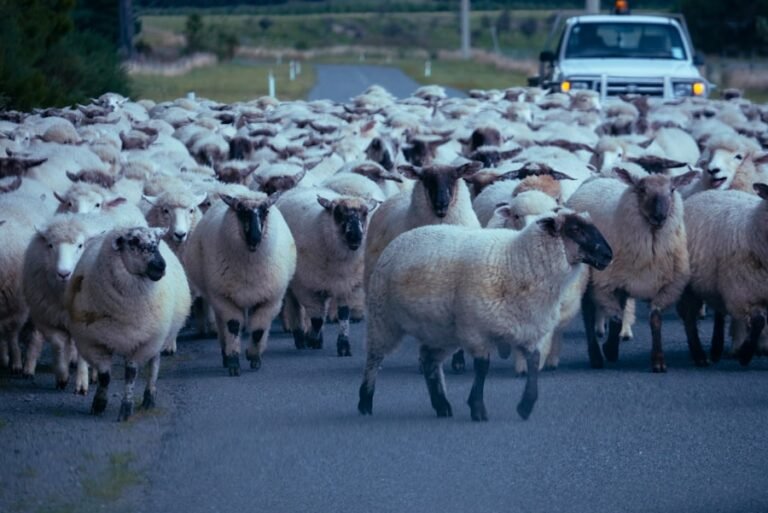Top 10 Tips for Preventing Obesity in Border Collies
Are you the proud owner of a Border Collie? If so, then it’s vital that you take the necessary steps to prevent obesity in Border Collies. With their boundless energy and active nature, Border Collies are prone to gaining excessive weight if not properly managed. In this article, we will share some helpful tips and recommendations to help you keep your Border Collie fit, healthy, and happy. By following these guidelines, you can ensure that your furry friend leads a long and active life, avoiding the risks associated with obesity.
Preventing Obesity in Border Collies Tip 1: Exercise
Keeping your Border Collie physically active is a crucial part of preventing obesity. Regular physical activity not only helps your dog maintain a healthy weight, but it also promotes overall fitness and mental stimulation.
Regular Physical Activity
Make sure to include regular exercise sessions in your dog’s daily routine. Border Collies are highly energetic dogs that require a significant amount of exercise to stay healthy and prevent obesity. Aim for at least 1 to 2 hours of physical activity every day.
Take your Border Collie for long walks or jogs to help them burn off excess energy. Engaging in activities such as playing fetch, frisbee, or agility training can also provide mental stimulation and keep your dog physically active.
Play and Mental Stimulation
Incorporating playtime and mental stimulation into your Border Collie’s routine is equally important. Border Collies are highly intelligent dogs that thrive on mental challenges. Engage your dog in interactive play sessions, such as hide-and-seek or puzzle toys, to keep their mind active and prevent boredom.
Consider enrolling your Border Collie in activities such as obedience training, scent work, or even advanced trick training. These activities not only provide mental stimulation but also build a stronger bond between you and your dog.
Preventing Obesity in Border Collies Tip 2: Diet
Proper nutrition plays a vital role in preventing obesity in Border Collies. Providing a high-quality dog food and controlling portion sizes are key factors in managing your dog’s weight.
Choose a High-Quality Dog Food
Selecting a high-quality dog food that suits your Border Collie’s specific needs is essential. Look for a well-balanced diet containing lean proteins, healthy fats, and a moderate amount of carbohydrates. Avoid foods with excessive additives, preservatives, or fillers.
Consult with your veterinarian to determine the best food options for your Border Collie’s age, activity level, and any specific dietary needs they may have. Remember, proper nutrition is the foundation for your dog’s overall health and weight management.
Control Portion Sizes
It’s important to feed your Border Collie the appropriate portion sizes to prevent excessive weight gain. Follow the feeding guidelines provided by the dog food manufacturer based on your dog’s weight and activity level. Monitor your dog’s body condition score (BCS), which is a visual assessment of their weight and body condition, and adjust portion sizes accordingly.
Avoid overfeeding or giving excessive treats, as it can contribute to weight gain. Instead, use treats sparingly and consider using low-calorie options or even incorporating healthier alternatives such as fruits or vegetables as treats.
Monitoring
Regular monitoring of your Border Collie’s weight and overall health is essential in preventing obesity. Schedule regular vet check-ups and monitor their body condition score to ensure they are in optimal shape.
Regular Vet Check-ups
Make sure to schedule routine veterinary check-ups to monitor your dog’s weight, overall health, and catch any potential health issues early on. Your vet can provide guidance on your Border Collie’s weight management and suggest adjustments to their diet or exercise routine if needed.
Monitoring Body Condition Score
Keep an eye on your Border Collie’s body condition score (BCS). This is a visual assessment that considers factors such as the presence of ribs, waist definition, and overall muscle tone. Your veterinarian can help you determine the ideal BCS for your dog’s breed and size. If your dog’s BCS indicates they are overweight or underweight, take appropriate steps to address the situation, such as adjusting their diet or exercise routine.
Regularly assessing and monitoring your dog’s body condition score can help you prevent obesity by allowing you to make necessary modifications to their lifestyle.
Preventing Obesity in Border Collies: Preventing Overeating
Preventing overeating is crucial in maintaining an ideal weight for your Border Collie. Implement these strategies to ensure your dog doesn’t consume excessive calories.
Avoid Free-Feeding
Free-feeding, which involves leaving food out all day for your dog to eat at will, can contribute to overeating and obesity. Instead, establish a regular feeding schedule for your Border Collie. Divide their daily food portions into two or three meals and feed them at consistent times throughout the day.
By feeding your dog on a schedule, you can regulate their food intake and prevent them from mindlessly eating throughout the day.
Use Puzzle Toys or Slow-Feeders
Engaging your Border Collie in interactive feeding methods, such as puzzle toys or slow-feeders, can help prevent overeating. These toys add mental stimulation and require your dog to work for their food, slowing down their eating pace.
Puzzle toys encourage problem-solving skills and provide an interactive way for your dog to receive their meals. Slow-feeders, on the other hand, have built-in obstacles that make it more challenging for your dog to consume their food quickly. These methods not only prevent overeating but also mimic the mental stimulation they would experience while foraging for food in the wild.
Preventing Obesity in Border Collies Tip: Avoiding Table Scraps
While it may be tempting to share your food with your Border Collie, it’s crucial to avoid giving them table scraps. Human food is often high in fat, salt, and other unhealthy additives that can contribute to weight gain and other health issues in dogs.
Discourage Begging
To prevent your Border Collie from begging at the table, establish and enforce consistent rules. Teach them to settle in their designated spot during mealtime and reward them with treats or praise for good behavior.
Avoid giving in to their begging behavior, as this can encourage them to continue seeking table scraps. Instead, provide healthy alternatives such as dog-friendly fruits or vegetables as occasional treats.
Train for Mealtime Behavior
Training your Border Collie for proper mealtime behavior is crucial in preventing them from begging or exhibiting undesirable behaviors around food. Teach them basic commands such as “sit” or “stay” and reinforce these commands consistently during mealtime.
Ensure that your Border Collie understands that they will be rewarded for displaying calm and patient behavior during meals. This will help them develop good manners around food and reduce the temptation to consume table scraps.
Training and Discipline
Proper training and discipline are essential factors in maintaining a healthy weight for your Border Collie. Implement these strategies to ensure your dog follows commands and engages in positive behaviors.
Teach Basic Commands
Teaching your Border Collie basic commands such as “sit,” “stay,” and “come” is not only crucial for their safety but also for their overall behavior. Consistently practicing these commands will establish a strong level of obedience and control.
By having a solid foundation in basic commands, you can effectively manage your dog’s behavior during mealtimes and prevent them from consuming excessive food or engaging in undesirable behaviors.
Use Positive Reinforcement
Positive reinforcement is a highly effective method of training for Border Collies. Rewarding your dog with treats, praise, or playtime when they display desired behaviors encourages them to repeat those behaviors in the future.
Use positive reinforcement to reward your Border Collie for following commands during mealtime or exhibiting self-control around food. This approach fosters a positive relationship between you and your dog and helps them maintain a healthy weight through positive behaviors.
Socialization
Proper socialization is not only essential for your Border Collie’s mental well-being but can also contribute to weight management. Engaging your dog in different environments and encouraging interaction with other dogs can help prevent boredom-related overeating.
Expose to Different Environments
Introduce your Border Collie to different environments, such as parks, beaches, or city streets, from an early age. Exposing them to various sights, sounds, and smells helps them become comfortable and confident in different settings.
Taking your dog for regular outings and exposing them to new environments provides mental stimulation and prevents them from becoming bored, which can lead to overeating.
Encourage Interaction with Other Dogs
Social interaction with other dogs is crucial for your Border Collie’s socialization and mental well-being. Organize playdates, visit dog parks, or enroll them in group training classes where they can interact with other dogs in a controlled environment.
Engaging in positive social interactions not only keeps your Border Collie mentally stimulated but also helps burn off excess energy, preventing them from resorting to overeating due to boredom.
Preventing Boredom
Boredom is a common trigger for overeating in dogs. Providing entertainment and rotating toys and activities can keep your Border Collie mentally engaged, reducing the likelihood of excessive eating.
Provide Entertainment and Toys
Offer a variety of interactive toys, chew toys, and puzzle toys to keep your Border Collie stimulated. These toys provide mental challenges, relieve boredom, and prevent your dog from seeking alternative sources of entertainment like excessive eating.
Rotate the toys regularly to keep your dog engaged and interested. Introducing new toys periodically can also help prevent boredom and make playtime more exciting for your Border Collie.
Rotate Toys and Activities
In addition to rotating toys, vary your Border Collie’s activities to keep them mentally stimulated and prevent boredom. Incorporate activities such as obedience training, scent work, or even swimming sessions to provide a change of pace and keep your dog engaged.
By providing a range of activities and toys, you can prevent boredom-related overeating and keep your Border Collie mentally and physically active.
Weight Management Programs
For effective weight management, consulting with a veterinarian and following professional advice is crucial. They can provide personalized guidance specific to your Border Collie’s needs.
Consult with a Veterinarian
If you’re uncertain about the ideal weight or dietary requirements for your Border Collie, consult with a veterinarian. They can accurately assess your dog’s current weight, body condition score, and overall health to create an appropriate weight management program.
A veterinarian can provide recommendations on calorie intake, exercise routines, and suggest any necessary dietary adjustments for weight loss or maintenance. Regularly updating your vet on your dog’s progress and seeking their guidance ensures a proactive approach to weight management.
Follow Professional Advice
Once you’ve consulted with a veterinarian, follow their professional advice diligently. Implement any recommended dietary changes, exercise routines, or weight management strategies they suggest.
Consistency is key when it comes to weight management, and following professional advice will help ensure the success of your Border Collie’s weight management program. Regularly check in with your veterinarian to monitor progress, address any concerns, and adjust the program as needed.
Genetic and Breed Factors
Understanding breed-specific characteristics and considering genetic testing can provide valuable insights into your Border Collie’s predisposition to obesity.
Understand Breed Characteristics
Border Collies are an active and intelligent breed known for their herding abilities. It’s important to understand that their genetic makeup may predispose them to specific health conditions, including obesity.
By understanding the breed’s characteristics and tendencies, you can proactively implement strategies to prevent obesity and maintain your Border Collie’s overall health.
Consider Genetic Testing
Genetic testing is a valuable tool that can provide insights into your Border Collie’s specific genetic makeup and potential health risks. It can help identify genetic markers associated with obesity or other conditions, allowing for early intervention or prevention strategies.
Consider discussing genetic testing options with your veterinarian to gain a deeper understanding of your Border Collie’s genetics and determine if there are any specific measures you should take to prevent obesity.
Preventing obesity in Border Collies requires a holistic approach that encompasses regular exercise, proper nutrition, monitoring, training, socialization, and weight management programs. By implementing these strategies and following professional advice, you can ensure your Border Collie remains in optimal health and avoids the risks associated with obesity. Remember, your dog’s well-being is in your hands, and with care and commitment, you can provide them with a long, healthy, and active life.









